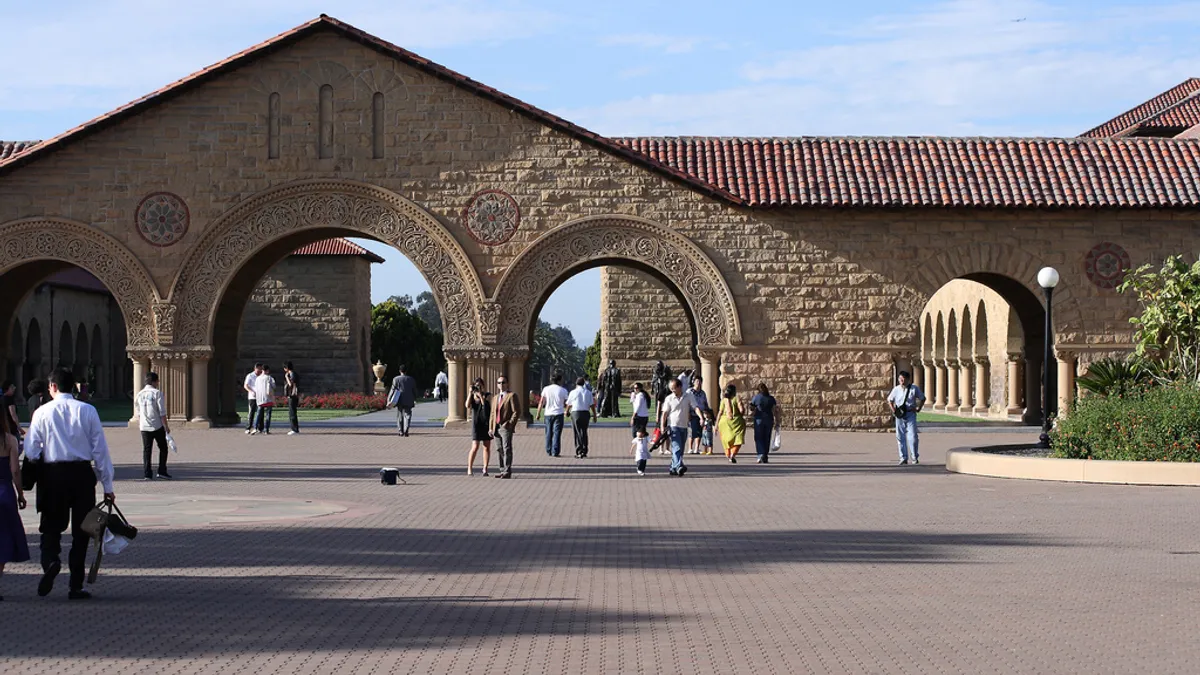Dive Brief:
- Stanford University hopes to win over Santa Clara County officials with a $4.7 billion pledge for housing, transit and public school benefits in exchange for maintaining current oversight levels on a project that would add some 2,600 student beds and 2.3 million square feet of academic space.
- The added benefits, which include more than 1,000 housing units and $30.3 million in funding for pedestrian, bicycle and transit infrastructure, aim to address the university's impact as well as general strain on the San Francisco Bay Area.
- The pledge is an effort to restart talks needed to get the approval of a reluctant county board, which suspended negotiations in April due to concerns Stanford was seeking more lenient oversight.
Dive Insight:
In exchange for a continuation of current rules governing the development project, the agreement would require Stanford to make improvements to the region beyond those inherent in its project.
However, county officials are skeptical Stanford will follow through, citing language in its 52-page proposal that says the county must make good on all elements of the contract in order to get the promised benefits, The Stanford Daily reported. Officials are also concerned Stanford would ask for leniency on rules governing its expansion, though Stanford maintains it isn't seeking that.
The county will restart discussions if Stanford agrees to hold them in a public setting and promises to give the benefits it is offering to the local school district regardless of whether the agreement is signed, according to The Daily.
The strain on housing and transit infrastructure in the Bay Area has caused tension between other colleges and their jurisdictions.
Earlier this month, the city of Berkeley, California, and a local advocacy group separately sued the University of California, Berkeley over its $126 million plan to add faculty housing and an academic building. The lawsuits contend the university is outpacing enrollment projections and as a result is placing undue stress on public services.
The city wants to raise impact fees while the advocacy group is asking to delay the project to conduct an environmental assessment. UC Berkeley called the proposed $21 million annual impact fee "unprecedented" across higher ed.
Along with colleges, companies in the Bay Area have been pressed to help jurisdictions address the region's housing crunch. Google last week pledged $1 billion over the next decade to build 20,000 homes there. Separately, it's creating a $250 million fund to offer incentives to developers to build affordable housing.













